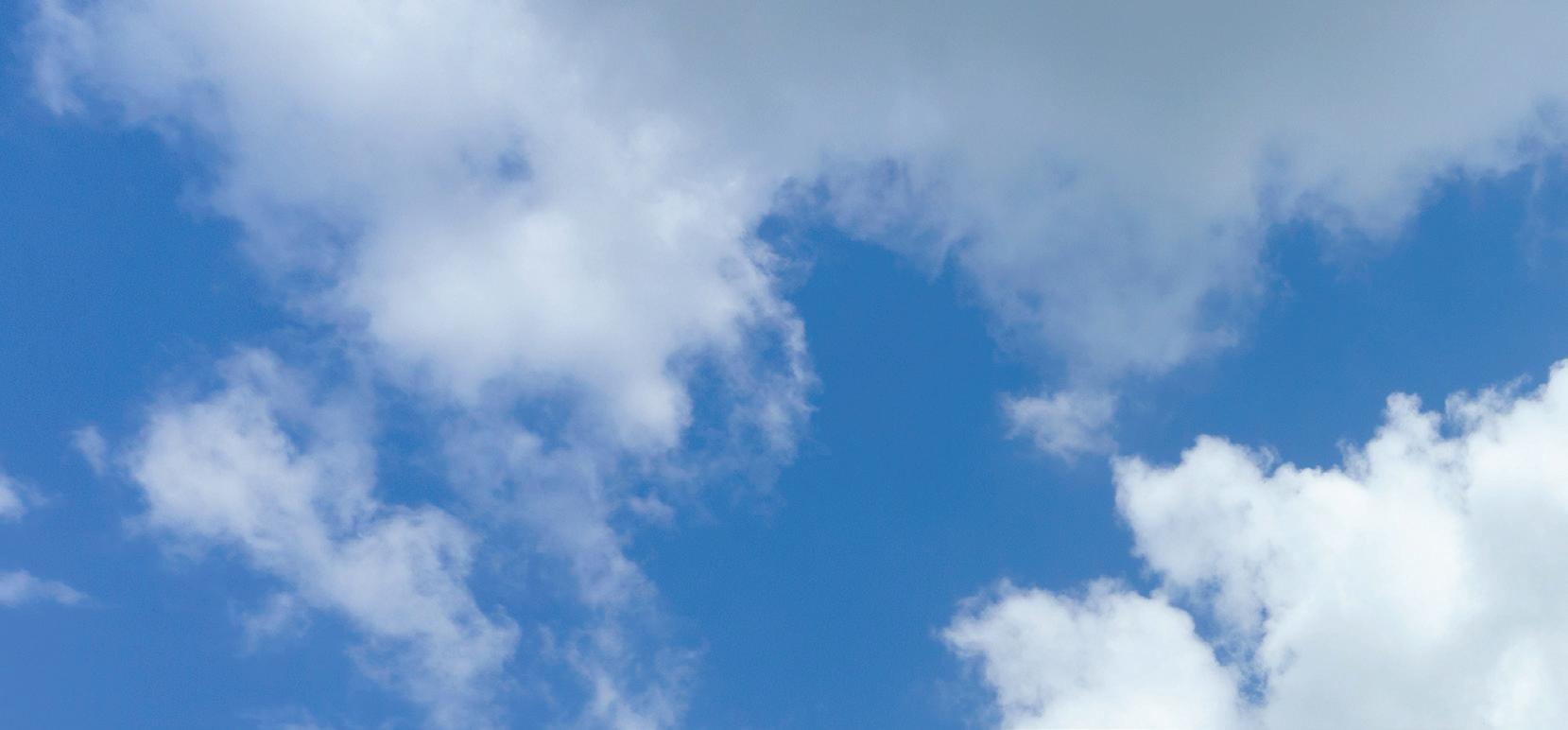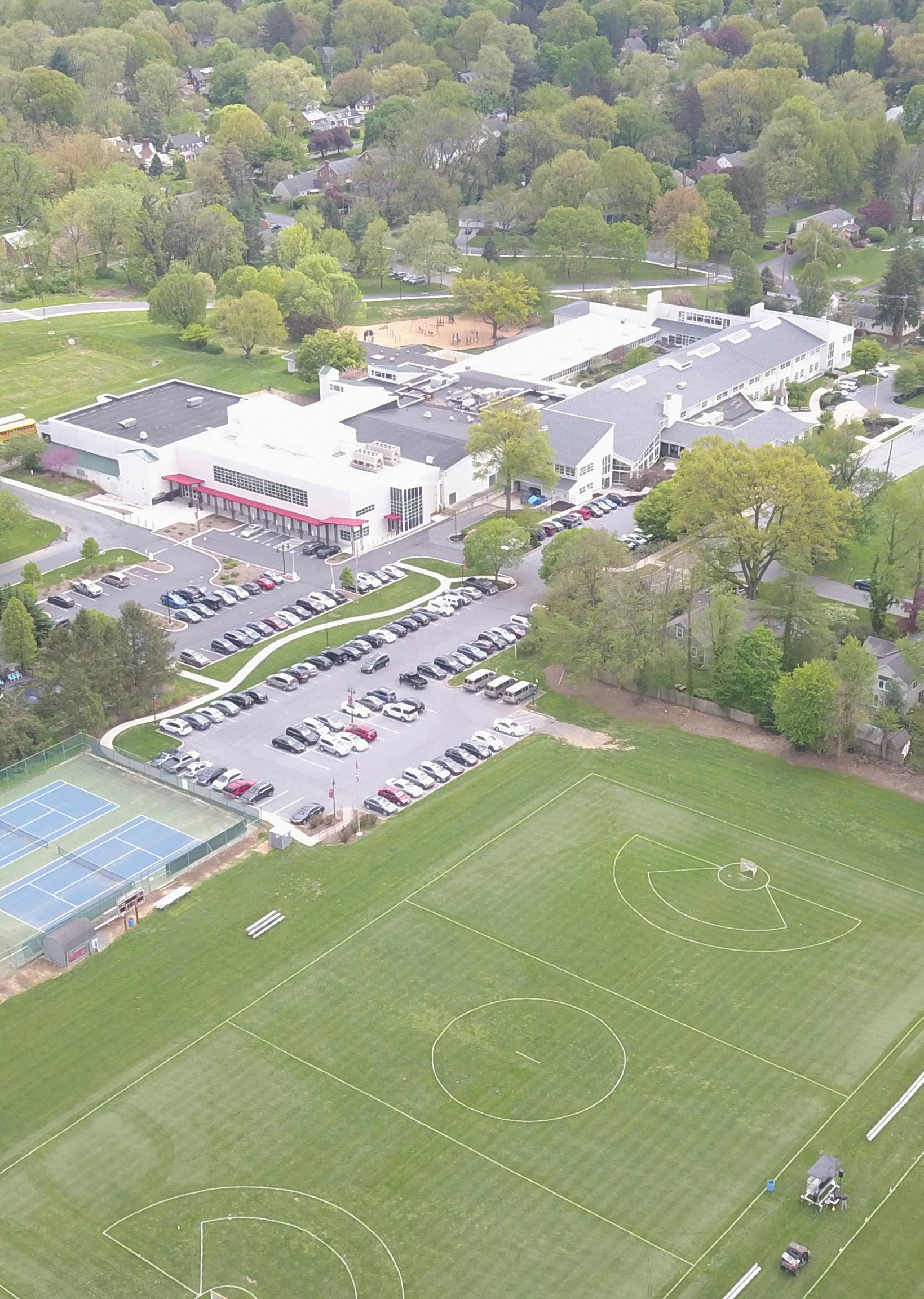
6 minute read
For-Credit Courses
Upper School academic courses for credit
Advertisement
Katelyn Mowery, LCDS faculty
Prerequisite(s): A grade of B+ or higher in Algebra I, or permission of the Algebra I instructor. This will be an in person class, though a virtual option is available for students with two devices. Class time will alternate between a learning day and a test day, with approximately one to one-and-ahalf hours of homework each day. To ensure understanding, learning days will include a graded worksheet due each afternoon. At the end of the course, there will be a comprehensive final exam. The worksheets, tests, homework, and final will all count toward your overall grade.
Week 1 Points, lines, planes, angle pairs, distances, measures, algebraic reasoning, proving angles congruent, proofs with lines and angles. Week 2 Proving triangles to be congruent, relationships within triangles, polygons, and quadrilaterals. katelyn mowery Week 3 Similarities in polygons, right triangle trigonometry. Week 4 Area, surface area, and volume. Week 5 Circles and geometric probability.
ENTERING GRADES 9-12 Biology June 21-July 23 8 a.m.-12 p.m. $800
Dr. Juliette Winterer, LCDS faculty
Prerequisite: none We will study in weekly units, with four days of online learning and one in-class lab day on Friday. Most online days will begin with short quizzes on nightly reading and homework, followed by lessons and short activities. Friday in-person lab days will entail weekend lab-writing homework. Course content includes biochemistry, ecology, cell anatomy and physiology, cellular reproduction, genetics, pattern and process of evolution, diversity of life, and animal physiology. There will be about 1-2 hours of homework each evening. Overall grade will be based on quizzes, homeworks, labs, and a comprehensive final.
Week 1 Biochemistry, Ecology Week 2 Ecology, Cell Biology Week 3 Heredity Week 4 Evolution Week 5 Animal Physiology
dr. juliette winte r e r

FOR-CREDIT COURSES

Lindsay Deibler-Wallace, LCDS faculty
Prerequisite(s): Full year of Algebra I and Honors Geometry with final grades of B or higher Vodcasts will be assigned as daily homework in addition to some practice problems on corresponding worksheets. Expect 1-1.5 hours of homework each evening. The final grade will be based on comprehensive weekly assessments on 2-3 units, laboratory activities, and a final exam.
Week 1 Laboratory safety, equipment, and procedures. Chemical measurements: Significant figures, conversions, factor-label method. Introduction to Chemistry: Element names and symbols, classification of matter, chemical/ physical properties and changes, energy. Atomic Structure: Atomic theory and structure, isotopes and average atomic mass, mole concept.
Week 2 The Periodic Table: Development of the Periodic Table, periodic trends. Chemical Bonding: Common ions, chemical bonding: covalent, ionic, metallic. Chemical Names and Formulas: Naming chemical compounds, using chemical formulas.
Week 3 Chemical Reactions and Equations: Writing and balancing equations, reaction types, predicting products. Stoichiometry: Stoichiometric calculations, limiting reactant, percent yield.
Week 4 Gases: Development of the gas laws, partial pressure, effusion and diffusion. States of Matter: Properties of solids, liquids, gases, kinetic molecular theory, phase changes.
Week 5 Aqueous Solutions: Concentration calculations, solution preparation and properties, colligative properties. Thermochemistry/Thermodynamics: Phase change energy calculations, enthalpy, entropy, and free energy. Advanced topics such as acids/bases and oxidation/reduction as time permits.


lindsay deibler-wall a c e chris wilson
Upper School academic courses for credit
ENTERING GRADES 9-12

PE Body Fit (trimester elective)
June 21-July 23 12 p.m. -1p.m. $265
Chris Wilson, LCDS faculty
Prerequisite: None This course will incorporate fitness trackers, FitBits, Apple Watches, steps apps, pedometers, physical assessments, both indoor and outdoor fitness activities, as well as lectures, labs, quizzes, and project assignments. The students will learn how to use various equipment for strength training. Students must have reliable WiFi access and be able to record video with a phone or iPad to submit completed assignments. The goal is to produce health-literate students familiar with the necessary tools and information of fitness and wellness. Grading of weekly participation, quizzes, labs, exams, and assignments will make up 75 percent of the final grade. The other 25 percent will be based on the final work-out plan, completed weekly during the course. The course is pass/ fail. One hour per day should be allotted to completing course activities.
jim ringlein
ENTERING GRADES 10-12 Physics I June 21-July 23 8 a.m.-12 p.m. $800
Jim Ringlein, LCDS faculty
Prerequisite(s): Full year of Chemistry and Algebra II with final grades of C or higher “Explore Learning” simulations and related worksheets are assigned for homework each evening, plus related e-reading and a few problems from the book. Expect about 1-1.5 hours of homework each evening. A quiz will be given each Friday, with a comprehensive final on the last day of class. You will need a laboratory notebook for documenting daily experiment results. This course is taught in person at LCDS. No virtual option.
Week 1 Kinematics in one and two dimensions, including use of LEGO Nxt robots. Week 2 Forces, including water-rocket construction and testing. Week 3 Momentum, energy, and work, including rollercoaster design. Week 4 Waves, sound, and optics Week 5 Electricity and magnetism

FOR-CREDIT COURSES
dr. todd trout
dr. trex proffit t

Upper School academic courses for credit
Dr. Todd Trout, LCDS faculty
Prerequisite(s): One full year (1.0 credit) of an honors-level high school chemistry course with a final grade of B or higher. This fully virtual course serves as an introduction to the vast fields of organic and biochemistry. We will look at the chemistry of various classes of organic compounds (alkanes, alkenes, alcohols, aldehydes, ketones, carboxylic acids, esters, amines, and amides) and then, as time permits, apply that chemistry to the study of biologically important compounds. The course includes a study of instrumental methods of analysis (GC, MS, IR, NMR). As this course will be taught online, it will not have a hands-on laboratory component. Expect about 1-1.5 hours of homework per evening. Because the course is fully remote, students may take this course while away on travel for the summer. About 60-90 minutes of HW per class period.
Week 1 Bonding; acid/base concepts; alkanes, alkenes and alkynes; addition polymers Week 2 Alcohols, phenols, and ethers; aldehydes and ketones. Week 3 Aldehydes and ketones (con’t); carboxylic acids and esters. Week 4 Amines and amides; an introduction to chirality; spectroscopy. Week 5 Spectral interpretation of organic compounds; research presentation.
Democracy and Civic Engagement
June 21-July 23 8 a.m.-12 p.m. $800
Dr. Trex Proffitt, LCDS faculty
Prerequisite(s): none Democracy and Civic Engagement helps students understand and act in today’s political world to effect better U.S. societal outcomes. Students will first learn about the foundations of America’s federal, state, and local government structures, how they operate, and how they’ve evolved and changed. They will then study movements that have created great change within the system. Finally, they will analyze current challenges and problems with civic participation and areas for further government policy work, and propose their own solutions. With a mainly historical focus, the course will ask students to analyze and debate specific cases and roleplay situations that illustrate key ideas. The class will emphasize critical thinking, research, debate, and written expression. Each week will feature a capstone experience that involves a special project of the student’s choice, focusing on an area of government policy the student chooses for improvement and a plan for mobilizing and executing that proposal. By the end of the course, students will understand how to be a better citizen in a democratic society and how to analyze multiple strategies for improving societal institutions.





